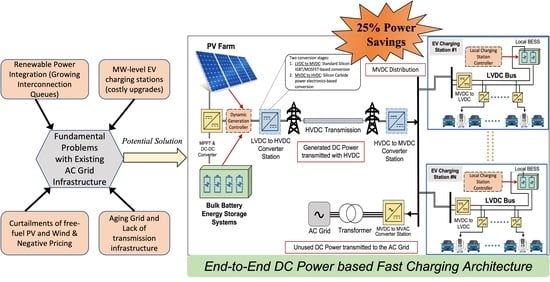Does car battery charge while idle. When a car is not running, the alternator does not generate power to charge the battery, but accessories such as the clock and security systems draw a small amount of power.
Car batteries are an essential vehicle component, supplying the electrical energy required to turn on the engine and run different accessories. However, there may be times when a car remains idle for extended periods, such as during vacations or when not in regular use.
This can raise concerns about the battery’s ability to maintain its charge. We will address the question, “Does a car battery charge while idle?
By understanding how car batteries function and the effects of inactivity, we can shed light on the charging process during idle periods and offer insights to help keep your battery in good condition. So, let’s dive in and find out how car batteries behave when the engine is not running.
Does Car Battery Charge While Idle?
One question that often comes to the mind of car owners is whether the car battery charges while the vehicle is idle. Understanding how car batteries work and the factors that affect their charging while idle can provide valuable insights into the performance and maintenance of your car battery.
Understanding How Car Batteries Work
Car batteries are essential to start your vehicle’s engine and power its electrical components. They change the energy from chemicals to electrical energy, which starts the engine and runs the car’s electrical systems.
A car battery is composed of lead plates submerged in an electrolyte solution. When you start your car, a reaction occurs between the lead plates and the electrolyte, producing electrical power. Next, this energy is employed to start the engine.
Once the engine is running, the alternator takes over the task of producing electrical energy and charges the car battery. The alternator generates electricity by converting mechanical energy from the engine’s rotating crankshaft.
Factors That Affect Car Battery Charging While Idle
While the alternator is responsible for charging the car battery, it does not provide a constant charge. The charging process can be affected by several factors, especially when the car is idle. Here are some essential factors to consider:
- Engine speed: The alternator charges the car battery more efficiently at higher engine speeds. When the engine is idle, the alternator’s charging capacity may not be sufficient to fully charge the battery.
- Electrical load: The electrical components in your car, such as the headlights, air conditioning, and stereo system, draw electricity from the battery. When idle, these components consume power, potentially draining the battery instead of charging it.
- Battery condition: The condition of your car battery plays a vital role in its charging capabilities. An old or weak battery may not charge fully even when the alternator functions appropriately.
- Temperature: severe weather, with highs and lows, can affect the performance of your car battery. The battery’s ability to hold a charge may decrease in icy conditions. At the same time, heat can accelerate battery degradation in hot weather.
- Battery maintenance: Regular upkeep, including terminal cleaning and checking the electrolyte level, can ensure optimal charging performance while the car is idle.
Combining these factors affects how much the car battery charges while idle. Suppose your vehicle has a healthy battery and is subject to minimal electrical load. In that case, there is a higher chance that the battery will charge to some extent. However, any of these factors are compromised. In that case, the battery’s charging capacity may be limited or not charged at all while the car is idle.

Credit: www.ebay.com
Revealing The Power-saving Secrets
If you own a car, you’re undoubtedly aware of the importance of a fully functional battery. It’s the life force that powers your vehicle’s electrical components, such as the lights, radio, and even the engine itself. But what happens to your car battery when it’s left idle? Does it continue to charge or gradually lose its charge over time?
Tips To Maximize Car Battery Charging While Idle
Your car battery can charge while idle, but optimizing this process to ensure maximum power-saving is essential. Here are a few handy tips to keep in mind:
- Ensure your car is parked in a well-ventilated area. High temperatures can cause excessive water evaporation and shorten your battery’s lifespan.
- Consider utilizing a trickle charger or battery maintainer. These devices provide a constant low-level charge, preventing your battery from draining completely.
- Regularly start and run your car for short periods, especially if it will remain still for a long time. This helps keep the battery charged and maintains its overall health.
- Turn off all unnecessary electrical appliances, such as the air conditioner, radio, and lights, when your car is idle. This reduces the strain on your battery and allows it to charge more efficiently.
- Keep your battery terminals clean and free from corrosion. Dirty terminals can hinder the flow of electricity and affect the charging process.
Common Misconceptions About Car Battery Charging While Idle
Now that we’ve discussed how to optimize your car battery charging while idle let’s address some common misconceptions:
- Misconception 1: Leaving your vehicle idling for a long time will fully charge the battery. While running the car can help charge the battery, it’s not a foolproof method to fully recharge a low battery.
- Misconception 2: Removing the battery from your car while idle will prevent power drain. Some modern vehicles have complex computer systems that require a constant power supply, even when the car is not in use. Removing the battery may disrupt these systems.
- Misconception 3: A jump-start can fully recharge a dead battery. Jump-starting can temporarily boost a dead battery, but it doesn’t address the underlying problem. It’s essential to properly charge the battery using a charger or driving the car for an extended period.
Remember, by implementing these power-saving tips and addressing common misconceptions about car battery charging while idle, you can ensure your battery remains charged and ready to go whenever needed. If you look after your batteries, it will look after you.

Credit: www.mdpi.com
Does car battery charge while idle while driving
A car battery generally charges while the vehicle is running or idling. When the engine runs, the alternator generates electrical power to recharge the battery. The alternator transforms the engine’s mechanical energy into electrical energy for usage to power the vehicle’s electrical systems and recharge the battery.
However, it’s important to note that if your car battery is old or in poor condition, it may not hold a charge as effectively, and prolonged idling might not be sufficient to fully recharge it. Additionally, having many electronic devices running in the vehicle could increase the overall electrical load and affect the battery’s charging efficiency.
Regular driving or idling for a reasonable amount of time should help maintain the charge of a healthy car battery. Suppose you have concerns about your battery’s condition. In that case, having it tested or inspected by a professional is a good idea.
Frequently Asked Questions Of Does Car Battery Charge While Idle
How Long Should I Idle My Car To Charge The Battery?
Idle your car for 10-15 minutes, as it helps recharge the battery. However, excessive idling can cause fuel wastage and engine wear. Use a battery charger for a faster recharge.
How Long Does A Car Have To Sit Idle Before The Battery Dies?
A car battery can die if the car sits idle for a long time, usually around two to three months.
Does Your Car Battery Drain While Idling?
Yes, your car battery can drain while idling. The electrical systems in your car, like the radio and air conditioning, can consume battery power even without an engine. Monitoring your battery’s health and limiting idle time is essential to prevent draining.
Does A Car Battery Charge Itself When Running?
Yes, a car battery charges itself when the vehicle is running.
Conclusion
To sum up, it is clear that car batteries do charge while idle, but not at a rate that can fully replenish their energy. It is essential to remember that a vehicle’s electrical components still consume power even when the engine is off.
To ensure a healthy battery, it is recommended to periodically start the engine or use a battery charger to maintain the charge. By understanding this process, car owners can take necessary precautions to avoid unexpected battery failures.

I am a technology Specialized writer and blogger based in the USA & UK. I have four years of experience in Technology, Social Media and all types of Battery’s like Solar Battery,Car Battery,Lithium Battery etc. So I work on solving these issues and give various tips on these issues.
